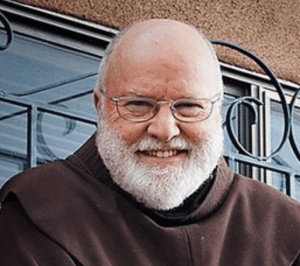I read yesterday about a poll conducted by Barna, taking the temperature of the Christian world on the issue of race. I couldn’t believe my eyes (but actually, yes I could). In spite of George Floyd, Ahmaud Arbery, and Breonna Taylor, and the shooting of Jacob Blake, and a summer of protests – in spite of all of that, a large swath of American Christians don’t think the US has a race problem. Here are some of the stats. Read slowly and take it all in. I’ll wait.
Less than half of white Christians think that historically minorities have been discriminated against. (Read that one again – it is stunning.)
Just 33% of white Christians think the US “definitely has a race problem.” (81% of Black Christians agree.)
Also, a full 30% of Christians are not motivated to address the issue of racial injustice.
To repeat: only 33% of white Christians – people who claim to follow Jesus – acknowledge a race problem. And of those that do, half of them don’t care enough to do anything about it.
I rolled this around in my head all day. A few years back when I was an Evangelical, I too may have said there is no race problem in the US – but now I know better. What changed? – and what needs to change in our hearts and the hearts of our fellow Christians, so that we can begin to bring healing?
I’m ashamed to say, I may have been too busy being self-righteous to see the racism around me (and in me). I thought the real problem was that certain communities have a basic lack of self-discipline. Why was I like that?

I think Richard Rohr (one of the “forbidden” authors I highly recommend) can offer an insight from “Falling Upward.”
Rohr, a mystic and monk, talks a lot about the first and second halves of life. As he explains it, many people stay permanently in the first half and never really mature spiritually.
We first-halfers have learned the religious rules, we know the rituals, we’ve mastered “piety” according to our definition (that is, we’ve rationalized our own vices). When we look at those outside our group, we find them lacking. We see the differences – and automatically assume they need to change.
Rohr suggests that when we’re stuck in first-half-of-life, we can get hung up on “low-cost moral issues,” thinking we’re actually addressing sin and holiness, when really we’re just playing trivial pursuit.
I’m thinking about freaking out when someone says “oh my god” (can’t they just say “oh my gosh”?). I’m thinking about righteous Facebook friends who say “LMBO” (“laugh my butt off”) instead of “LMAO.” Or the worst offense: “g*d**mit” (because when God hears that phrase, he takes it literally: he thinks we are really asking him to damn someone to hell).
I’m thinking about how we judge a young mom who isn’t controlling her toddler in the grocery store, the kid whose car stereo is too loud (they’re oblivious to our annoyance).
These are the smallest of potatoes. These are the gnats we strain out, this is the tithing of dill and mint and cumin (Matthew 23:23-
This is what it’s about:
He has shown you, O mortal, what is good.
And what does the Lord require of you?
To act justly and to love mercy
and to walk humbly with your God. (Micah 6:8)
True holiness requires me to change – and change, and change, and change.
I would submit that Second Amendment rights are a gnat. Why waste time talking about the right to carry a weapon when we have homeless people in our city? When drug use is rampant in our neighborhood? When immigrants are dying in cages at our border and our forests are on fire? Christians with Micah 6:8 on their hearts have more pressing issues than gun rights.
I believe looting is a gnat. When 500 people rise up in protest against inequality and police brutality, and we focus on the handful who are stealing from a Target, we’re missing the point.
Perhaps even the abortion issue is a gnat (I’ve talked about abortion here and here and here). Hear me out, now. We Christians have used the abortion issue as a battering ram. We might not say it out loud, but we’re thinking it: “promiscuous,” “irresponsible,” “lazy.” How about, instead of judging women, we spend our energy ending generational poverty – doing Micah 6:8?
I’m not suggesting that guns and abortion don’t matter – I’m saying there are bigger fish to fry.
In order to be done with the gnats and get to the camels, we need to outgrow this idea that we’ve arrived, and everyone else needs to be more like us. This is where Micah 6:8 happens – the second half of life that Richard Rohr describes (I invite you to read this slowly and savor it!):
There is a deeper voice of God, which you must learn to hear and obey in the second half of life. It will sound an awful lot like the voices of risk, of trust, of surrender, of soul, of “common sense,” of destiny, of love, of an intimate stranger, of your deepest self…The true faith journey only begins at this point. Up to now everything is mere preparation.
The “adepts” in all religions are always forgiving, compassionate, and radically inclusive. They do not create enemies, and they move beyond the boundaries of their own “starter group” while still honoring them…Mature people are not either-or thinkers, but they bathe in the ocean of both-and.
Once your life has become a constant communion, you know that all the techniques, formulas, sacraments, and practices were just a dress rehearsal for the real thing—life itself—which can actually become a constant intentional prayer. Your conscious and loving existence gives glory to God.
Let’s all go there – and as we do, let’s not just change the stats in next year’s Barna poll. Let’s heal our land.
(and let’s subscribe to Grace Colored Glasses!)
FEATURED IMAGE: “Our Camels” by Neil and Kathy Carey is licensed under CC BY-SA 2.0

















